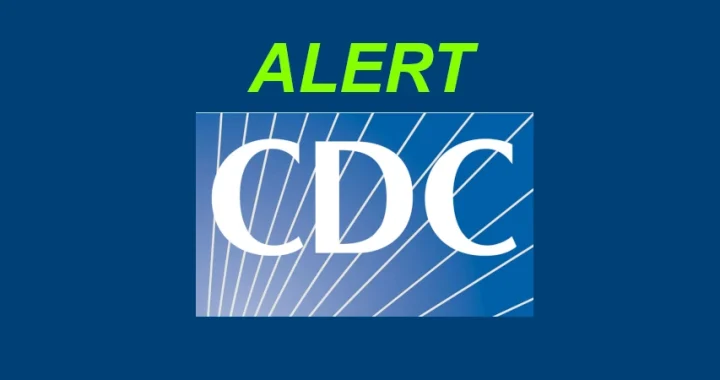10 A.I. generated SHTF prepping scenarios for 2024.

In analyzing potential SHTF scenarios for the United States it can be difficult to navigate the complex landscape of geopolitical, economic, and societal dynamics. For this report, I used ChatGPT to prioritize and examine ten plausible SHTF scenarios and to also give reasons for each of the scenarios.
The following examination aims to discern and analyze the varying probabilities and underlying factors using historical data and trends of the past.
Table of Contents
- 1 SHTF scenarios for 2024
- 1.1 1. A massive storm causes widespread, regional power outages.
- 1.2 2. A second civil war where Americans are fighting other Americans.
- 1.3 3. A terrorist attack on U.S. soil causes thousands of deaths.
- 1.4 4. An EMP takes the electric grid down.
- 1.5 5. The government turns on its people and halts presidential elections.
- 1.6 6. Another great depression like that of 1929.
- 1.7 7. A total economic collapse.
- 1.8 8. The dollar collapses and becomes worthless.
- 1.9 9. A nuclear war between two opposing superpowers.
- 1.10 10. Nationwide starvation due to food shortages.
- 2 Conclusion
SHTF scenarios for 2024
Below is a list of SHTF scenarios that ChatGPT listed in order of most likely to least likely using readily available, historical data.
1. A massive storm causes widespread, regional power outages.
- Historical Precedence: Hurricane Katrina in 2005 caused extensive power outages, revealing vulnerabilities in infrastructure.
- Infrastructure Vulnerability: Superstorm Sandy in 2012 highlighted weaknesses in the power grid, affecting millions.
- Increased Frequency: The frequency of severe weather events has risen over the years, as seen in the National Oceanic and Atmospheric Administration (NOAA) data.
- Emergency Preparedness: Lessons from Hurricane Maria in 2017 underscored the importance of robust emergency preparedness, especially in Puerto Rico.
2. A second civil war where Americans are fighting other Americans.

- Political Polarization: The historical precedent of the American Civil War (1861-1865) underlines the impact of deep political divisions.
- Historical Examples: Civil conflicts in other nations, like the Balkans in the 1990s, demonstrate the destructive potential of internal strife.
- Social Media Influence: Instances of social media fueling violence, as observed in the role of Facebook in the Rohingya crisis.
- Economic Strain: The economic disparities leading to social unrest, reminiscent of the economic factors contributing to the Spanish Civil War.
3. A terrorist attack on U.S. soil causes thousands of deaths.
- Historical Precedence: The 9/11 attacks in 2001 resulted in nearly 3,000 deaths, shaping global security policies.
- Global Terrorism Threat: The persistent threat of terrorism worldwide, evident in events such as the London bombings in 2005.
- Intelligence and Security: Failures in intelligence sharing pre-9/11 highlighted the need for improved coordination, as recommended by the 9/11 Commission.
- Social Impact: The societal impact of terrorist attacks, seen in increased security measures and changes in public perception.
- Border security challenges: Weaknesses in border controls may allow terrorists to enter the country undetected.
4. An EMP takes the electric grid down.
- Technological Vulnerability: Historical events like the 1962 Starfish Prime nuclear test highlight the potential impact of EMP on electronics.
- National Security Implications: Congressional reports, such as the EMP Commission’s findings, emphasize the national security threat posed by EMPs.
- Limited Historical Precedence: The rarity of EMP events, with most notable incidents being high-altitude nuclear tests.
- Long-Term Disruption: The potential for prolonged disruption, as demonstrated in the aftermath of the Quebec power outage of 1989 caused by a solar storm.
- Potential for cyber warfare: The interconnected nature of the grid makes it susceptible to cyber-attacks, including those capable of causing EMP-like effects.
5. The government turns on its people and halts presidential elections.
- Political Stability: Historical data shows that in stable democracies, such as the United States, governments turning against their own citizens to halt elections is extremely rare.
- Constitutional Safeguards: The U.S. Constitution, with its system of checks and balances, has historically prevented the executive branch from overreaching and taking unilateral actions to stop elections.
- Public Resistance: Throughout history, citizens have demonstrated a strong resistance to authoritarian actions, as seen in protests against attempts to curtail democratic processes.
- International Consequences: Instances of global condemnation and sanctions against countries that undermine democratic principles and human rights, reinforcing the deterrent against such actions.
6. Another great depression like that of 1929.
- Economic Cycles: Historical economic cycles show that while recessions occur, another Great Depression scenario has been mitigated through lessons learned and proactive economic policies.
- Global Economic Interdependence: Increased global economic interdependence, exemplified by measures taken during the 2008 financial crisis, demonstrates how nations collaborate to prevent severe economic downturns.
- Financial System Resilience: Reforms like the establishment of the Federal Reserve after the Great Depression have enhanced the resilience of the financial system against catastrophic collapses.
- Fiscal and Monetary Policies: The ability of governments to implement counter-cyclical fiscal and monetary policies, as seen in responses to recent economic downturns.
7. A total economic collapse.
- Unprecedented Nature: While severe economic downturns have occurred, a total economic collapse in a developed country with a stable political system is unprecedented in modern history.
- Policy Responses: Governments’ ability to intervene with economic stimulus packages and other measures has historically prevented total economic collapses.
- Global Economic Dynamics: The inter-connectedness of the global economy, demonstrated by coordinated responses to financial crises, acts as a stabilizing force.
- Institutional Resilience: The strength of economic institutions and their ability to adapt, evident in post-World War II economic recoveries.
8. The dollar collapses and becomes worthless.
- Global Reserve Currency: Historical data shows that the U.S. dollar has maintained its status as the global reserve currency despite economic challenges.
- Economic Policies: The adaptability of economic policies, as demonstrated by the ability to weather economic storms, has historically preserved the value of the U.S. dollar.
- Confidence in Institutions: The historical confidence in U.S. institutions and financial systems has been a crucial factor in maintaining the strength of the dollar.
- Historical Confidence: The U.S. dollar’s resilience during past economic crises, including the 1970s oil crisis and the 2008 financial crisis, reflects historical confidence.
9. A nuclear war between two opposing superpowers.
- Global Deterrence: Historical data, particularly during the Cold War, underscores the effectiveness of nuclear deterrence in preventing direct conflicts between superpowers.
- Diplomatic Channels: Ongoing diplomatic efforts, such as arms reduction treaties, demonstrate the commitment to avoiding nuclear conflict through dialogue.
- Global Consequences: The catastrophic global consequences of nuclear war, as demonstrated by the lasting impact of nuclear tests and the Chernobyl disaster, provide strong incentives for avoiding such a scenario.
- Strategic Balance: The awareness of the strategic balance and the mutually assured destruction doctrine, deterring the use of nuclear weapons.
10. Nationwide starvation due to food shortages.
- Agricultural Practices: Historical advancements in agricultural practices, such as the Green Revolution, have consistently increased food production, reducing the likelihood of widespread starvation.
- Global Food Trade: The inter-connectedness of global food markets has historically allowed nations to compensate for localized food shortages through international trade.
- Food Security Measures: Government and international efforts, like the United Nations’ Sustainable Development Goals, aim to ensure food security and prevent widespread hunger.
- Emergency Response: The ability to mobilize resources during past humanitarian crises, such as famines and droughts, showcases the effectiveness of emergency response mechanisms in preventing nationwide starvation.
Conclusion
Remember folks, we’ve been lied to for years by scientists and experts alike and so it would be nearly impossible to truly know if certain social and world issues have merit.
What’s nice about Chat GPT is that it knows all the historical data much better than we do and so it can better prioritizes the most likely scenarios. With that said, the data that ChatGPT uses does come from sources that scientists, historians and experts have tainted.
Using actual events and trends that have occurred in history can be the best indicator of probably and the best way to prioritize what we need to be focused on as preppers.






